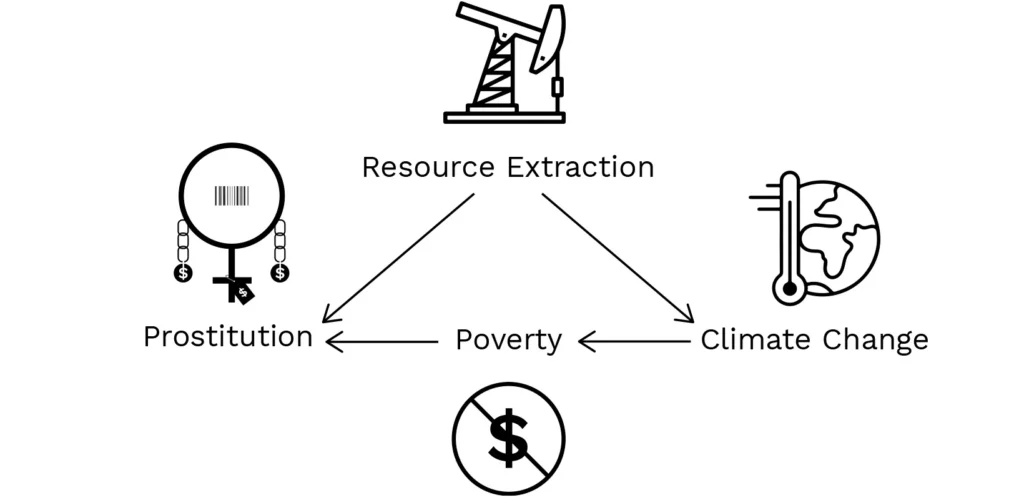Why Is FPIC Relevant?
FPIC gives our communities the power to stop unwanted projects on our territories and creates a space for negotiations to make sure any activity happens on our terms.
Why is FPIC useful?
Mainly to deal with extractive industries.
On this platform, we define extractive industries to be a broad range of industries based on taking something from our lands, such as water, wood, minerals, oil, or labor. Our definition also includes industries that want to pass through our land for their benefit. Such projects include oil pipelines, conservation parks, and roads, to name a few.
It is important to understand that FPIC also includes development projects intended to increase the quality of life in our communities, such as schools, parks, and hospitals. We have the right to negotiate the terms of these projects as well. As crucial as these assets may be for our communities, we must be aware of any potentially adverse environmental, economic, or social effects they could bring.
How do Extractive Industries Approach Fourth World Nations?
Companies may give us money or valuable objects in exchange for the right to use our land. Such acts are bribery, and no community members should accept anything outside official negotiations.
Representatives of companies or states may try to pressure us with time constraints or ask to speak with people who are not legitimate decision-makers for our community. These attempts are illegal! They violate international human rights law. FPIC allows us to make every step of the process at our own pace. See more guidelines on our Take Action page.
We have the right not to be pressured and to use our normal decision-making processes to assess all proposals.
Dr. Farley speaks about the relationship between extractive industries, poverty, climate change and prostitution.
.. and what do they leave behind?
At first, extractive industries bring in a lot of money. This period may be short-term or may last for years, but eventually, we will feel the backlashes to our community’s ecosystems and social structure.
Even if an industry plans to provide jobs for years, the overall loss to the community compared to the money gained may be too high of a price to pay. For this reason, our communities must negotiate the terms and conditions by which others may use our land and monitor that those terms are respected.
Backlashes from extractive industries range from poverty to health issues, prostitution to child labor, and can create an unrepairable situation.
Considering how an extractive industry will impact our community’s current social and economic structure during and after its presence on our land is imperative.


